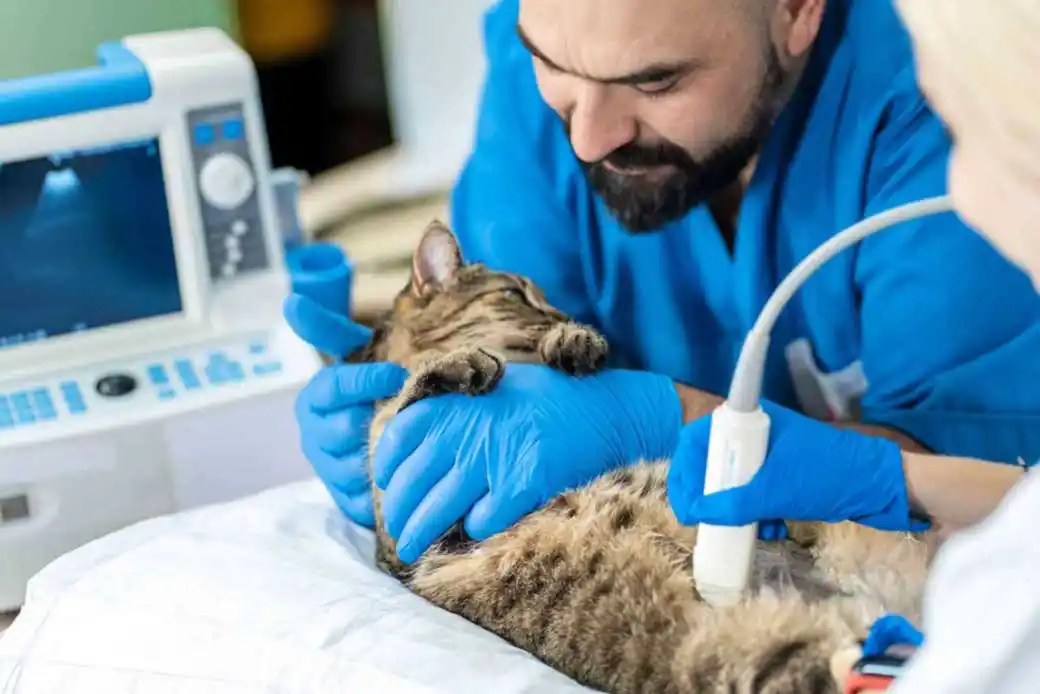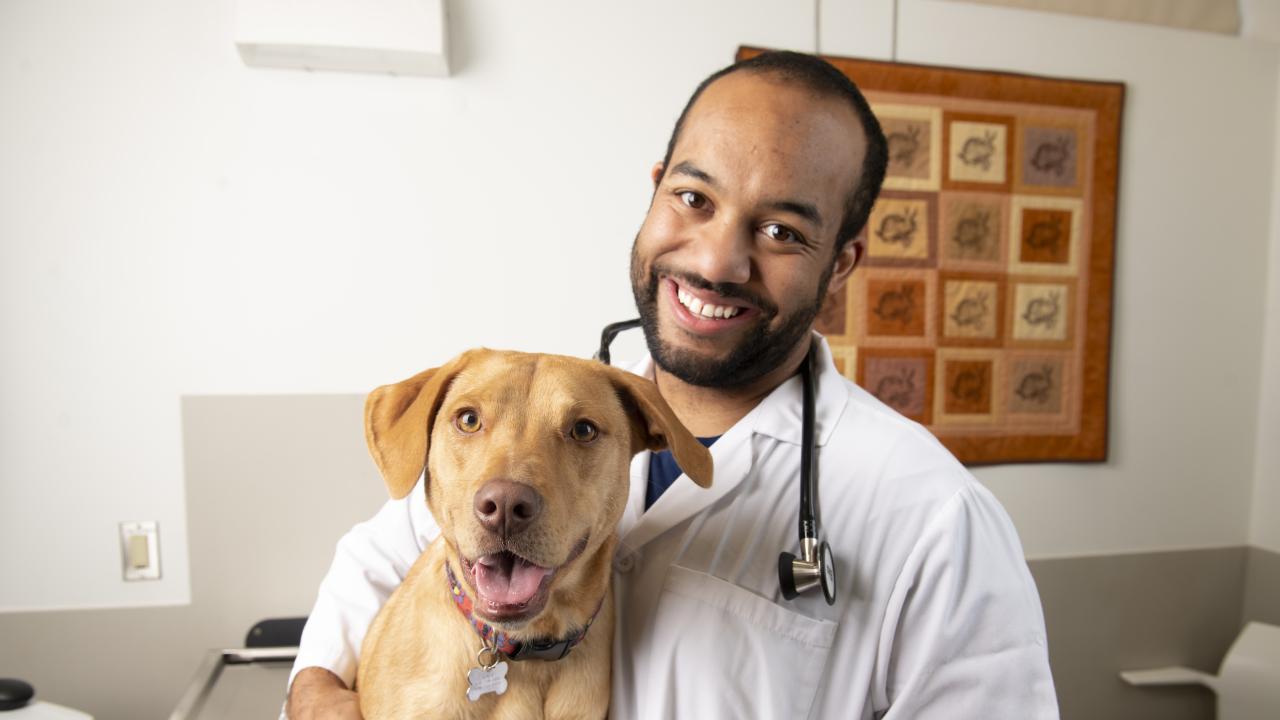Recognizing the Function of a Veterinary Oncologist in Your Family pet's Cancer Care
A veterinary oncologist concentrates on treating and detecting cancer in animals. Their competence is essential for establishing tailored treatment plans that address the distinct demands of each family pet. Early medical diagnosis can significantly affect end results, making their duty a lot more crucial. Recognizing the numerous treatment options and just how these experts team up with main vets is essential. What methods do they use to improve your animal's quality of life throughout this challenging time?

What Is a Vet Oncologist?
A veterinary oncologist is a customized veterinarian who concentrates on diagnosing and treating cancer cells in pets. These specialists possess innovative training in both veterinary medicine and oncology, enabling them to comprehend the intricacies of cancerous illness in pets. Their competence permits them to execute a range of analysis treatments, consisting of imaging techniques and laboratory examinations, to properly recognize various sorts of cancers in animals.
Along with medical diagnosis, vet oncologists create customized therapy strategies, which might consist of surgical procedure, chemotherapy, radiation treatment, or palliative treatment. They work carefully with animal owners to discuss therapy options and potential outcomes, making sure that family members make notified choices regarding their family pets' treatment. Additionally, vet oncologists frequently collaborate with other basic specialists and veterinary specialists, producing a detailed strategy to animal health and wellness. By concentrating on cancer care, they play a critical duty in enhancing the high quality of life for pets detected with hatreds.
The Significance of Early Diagnosis and Therapy
Early medical diagnosis and treatment of cancer cells in pet dogs significantly enhance the opportunities of effective outcomes and enhanced lifestyle. Vet oncologists can execute targeted treatments that might slow illness progression and minimize signs when cancer cells is identified in its early phases. This proactive strategy permits better administration of the condition, possibly resulting in longer survival times and enhanced comfort for the family pet.
Additionally, early discovery frequently indicates that therapy options may be much less invasive and a lot more effective, decreasing the total concern on both the pet dog and its proprietor. Routine veterinary examinations and recognition of subtle behavior modifications are crucial, as they can assist in timely medical diagnoses. Owners should stay vigilant and consult their veterinarian at the very first indicator of issue. Veterinary Cancer Specialist. Eventually, a very early diagnosis empowers pet proprietors to make enlightened choices about their animal's care, considerably influencing the overall journey through cancer cells management
Treatment Options Supplied by Vet Oncologists
When encountered with a cancer cells diagnosis, animal owners can explore a variety of therapy alternatives given by vet oncologists that are tailored to the certain needs of their pets. These professionals normally provide a combination of surgery, radiation treatment, radiation treatment, and immunotherapy. Surgical intervention might intend to remove growths or affected cells, while chemotherapy utilizes drugs to eliminate and target cancer cells, usually carried out in cycles.
Radiation therapy focuses on making use of high-energy rays to reduce lumps and ease discomfort. Immunotherapy, a much more recent advancement, uses the pet dog's body immune system to combat cancer cells extra successfully. Additional encouraging treatments, such as discomfort administration, dietary support, and palliative treatment, are likewise essential components of a comprehensive therapy plan. By evaluating each situation individually, vet oncologists guarantee that the selected therapy lines up with the pet's total health and wellness and cancer type, making the most of the chances of a favorable end result.
The Collaborative Method: Functioning With Your Key Vet
Cooperation in between primary veterinarians and veterinary oncologists is important for giving comprehensive like animals identified with cancer cells. This partnership assures a complete approach to therapy, incorporating the specialized expertise of oncologists with the recurring care given by main veterinarians. Together, they assess the animal's health, create individualized therapy strategies, and keep an eye on the pet's progression throughout the cancer journey.
Key vets often function as the first factor of contact, identifying possible official source signs of cancer cells and referring people to oncologists for specialized diagnostics and treatment options. Complying with the oncologist's referrals, the primary veterinarian plays a crucial duty in managing the pet's overall wellness, including pain management and supportive care.
Effective interaction Website between these specialists cultivates a unified strategy, permitting for timely interventions and modifications to therapy as required. This collaborative approach inevitably improves the top quality of care and assistance for pets and their proprietors throughout a difficult time.


Supporting Your Animal With Cancer Care
Sustaining an animal with cancer care calls for a comprehensive understanding of the emotional and physical challenges faced by both the animal and its owner. Caregivers need to listen to the pet's changing needs, which may consist of taking care of pain, readjusting diet plans, and keeping an eye on adverse effects from treatments. Supplying a comfy, worry-free atmosphere is important for the pet dog's health.
Emotional support is similarly crucial; owners should look for to remain favorable and engaged while knowing their very own feelings of anxiousness and sadness. Producing an assistance network, consisting of veterinarians, household, and pals, can ease some problems.
Additionally, pet proprietors must inform themselves concerning the details sort of cancer cells and therapy choices available, cultivating notified conversations with veterinary oncologists. Eventually, a compassionate technique, incorporated with proactive treatment and assistance, can enhance the family pet's lifestyle during this difficult trip.
Frequently Asked Questions
How Do I Pick the Right Veterinary Oncologist for My Pet?
Choosing the best vet oncologist involves researching credentials, looking for referrals, evaluating experience with specific cancers cells, determining interaction designs, and going to centers to ensure a comfortable atmosphere for both the pet dog and owner during treatment.
What Should I Anticipate Throughout the First Consultation?
Throughout the very first consultation, the pet dog proprietor can anticipate a detailed assessment, discussion of case history, diagnostic tests, and a navigate to these guys therapy strategy rundown. The vet will certainly attend to issues and offer assistance for continuous care.
Exist Any Costs Associated With a Vet Oncologist's Solutions?
Expenses related to a veterinary oncologist's solutions can vary significantly based on area, therapy complexity, and needed diagnostics. Veterinary Oncology Services. Pet proprietors must expect expenses for appointments, examinations, and possible recurring treatment plans tailored to their animals' needs

Can My Animal Still Receive Normal Vet Treatment While Seeing an Oncologist?
Family pets can get regular vet treatment while seeing an oncologist. Collaborating treatments warranties thorough wellness administration. Regular examinations enhance specialized cancer cells care, enabling for alternative tracking of the family pet's overall well-being and addressing various other wellness problems.
What Resources Are Available for Pet Owners Throughout Their Pet's Cancer Trip?
Various resources are readily available for family pet owners maneuvering their animal's cancer journey, consisting of assistance teams, on-line forums, instructional websites, and financial assistance programs, all aimed at supplying advice, psychological support, and useful information throughout this difficult time.
A veterinary oncologist is a specific vet that concentrates on diagnosing and dealing with cancer cells in family pets. They work closely with animal owners to clarify treatment alternatives and possible results, ensuring that families make notified decisions regarding their family pets' treatment. When faced with a cancer cells diagnosis, animal proprietors can discover a range of therapy options provided by veterinary oncologists that are tailored to the details demands of their pets. Collaboration between vet oncologists and key vets is crucial for offering extensive care to family pets diagnosed with cancer cells. In addition, pet owners should inform themselves regarding the specific type of cancer and treatment alternatives offered, promoting educated discussions with veterinary oncologists.